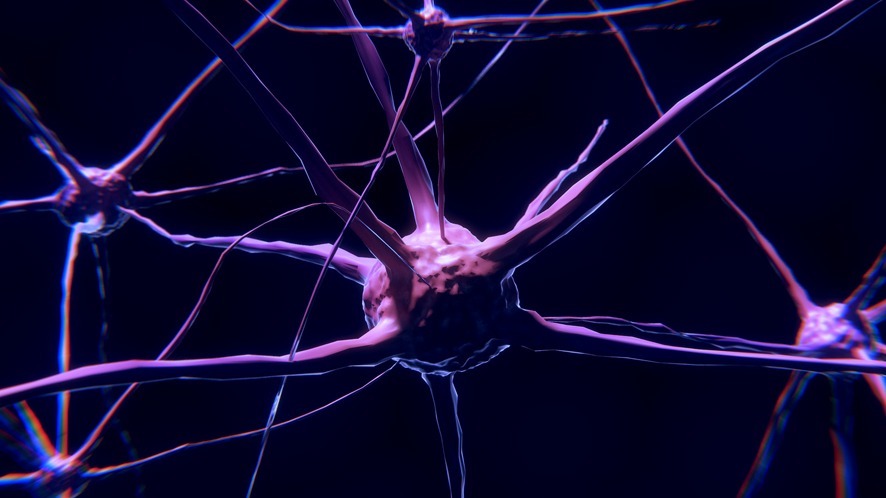Overview
The empath under stress
Whether it’s after a breakup, within a relationship, or simply navigating everyday life, empathic individuals often find themselves overwhelmed by impressions. When overstimulated, it´s almost impossible for them to get a clear sense of one’s emotions or the overall situation.
A flood of input can lead to intense inner stress, physical symptoms, and a sense of losing control over one’s emotional state. This can feel terrifying, especially when you’re unsure of what’s happening or how to manage it. Current emotions may mix with old wounds or feelings of others. The empath is confused & overwhelmed, while he longs for clarity, which is essential for making sound decisions.
This article aims to guide you in taking the first, crucial step: eixting a constant state of hyperactivation. Before you can distinguish between your own emotions and those of others, you need to create the preconditions for emotional balance.
The goal is to let your thoughts and feelings settle, allowing you to reach a state of calm. Many empaths feel pressure to make decisions while still overwhelmed, but this is as ineffective as trying to solve a puzzle while fleeing from a tiger.
Below, I explain why this doesn’t work – and introduce you to 10 steps that will help you regain control and self-regulation as an empath.
Stress | A survival mechanism
Stress has a bad reputation, but it’s important to remember that, biologically, stress is a neutral state of activation. It has always played a crucial role in survival. In some situations, stress enables extraordinary actions – think of firefighters rescuing people from burning buildings or people demonstrating superhuman strength in emergencies. Stress helps us focus and mobilize resources, both physically and mentally. Here’s a breakdown of how it works:
The stress response | Basics
Whenever your mind perceives something as threatening or challenging, your biological stress response kicks in. Imagine a tiger suddenly bursting through your door – you wouldn’t have time to think, but would react instantly. Your body releases adrenaline, your pulse quickens, your muscles tighten, and your pupils dilate. You might feel dizzy or nauseous. This “fight or flight” response is your body preparing for immediate survival.
During this phase, your mind is focused on detecting possible threats, seeing everything through a lens of danger to protect you. While this process is helpful for survival, it distorts your perception, if it occurs in daily life – you may see many things as more threatening than they truly are.
Chronic stress & its impact
In a prolonged state of stress, your perception remains focused on potential threats. Your heart beats faster, your mind is going in circles, and your body stays alert, making it difficult to rest or sleep. Over time, your adrenal glands stop producing adrenaline and switch to cortisol, a hormone that sustains stress in long term. Elevated cortisol levels can lead to high blood pressure, immune system suppression, and slower wound healing, and more.
It´s very unlikely to find clarity or self-understanding in this state. To separate your emotions from those of others can´t work, when you’re constantly in a state of alarm. Empaths, in particular, are vulnerable to this because they perceive everything so intensely. In order to differentiate between your emotions and those of others, you need calm and introspection. Learning to pull back your emotional “antennas” is essential.
Empathy & Stress | unique challenges
Empaths are naturally tuned into their surroundings. This tendency becomes heightened under stress, leading to even more external focus. This constant outward orientation, combined with distorted perceptions of threat, creates a feedback loop of chronic stress. Empaths may experience sensory overload, even dissociation, and struggle to feel grounded.
10 steps to break the empathic stress loop
There are multiple ways for empaths to break free from the stress cycle. Though some methods, like physical activity, might seem simple, they are incredibly effective. Grounding is key – it helps you reconnect with your body and return to the present moment. These steps will guide you toward reducing overstimulation and restoring emotional balance.
1. Physical activity
Engage in physical activity to help your body use up the energy created by stress. Whether through running, swimming, or another form of exercise, physical activity helps metabolize stress hormones and release muscular tension. Physical activity also enhances body awareness, helping you feel more grounded.
2. Focused breathing
Pay attention to your breath. Fast, shallow breathing (hyperventilation) alters the CO2 levels in your blood, which can trigger further panic. Consciously slowing your breath sends a signal to your body that it’s safe to relax. Try deep belly breathing: inhale for four seconds, exhale for eight. Allow the diaphragm in your belly to expand and go back while doing so. Practicing this throughout the day can become a powerful habit for relaxation.
3. Check your thoughts | where is the Threat?
Have you ever noticed your body feels restless, even when everything seems fine? When your mind is in a state of stress, even harmless thoughts can feel like tigers chasing you. Your brain doesn’t distinguish between real and imagined threats, so it reacts to stressful thoughts as if they’re happening right now. Ask yourself: “Is there a real threat in this moment, or is it just in my thoughts?”
4. Managing thoughts and feelings
Mindfulness helps you observe your thoughts and feelings without getting caught up in them. Imagine your thoughts as a movie playing in your mind. Instead of becoming absorbed in the plot, take a step back and simply observe. This practice helps you create a gap between yourself and your thoughts & emotions, reducing their intensity.
5. empathic reset | retract your antennas
Bring your attention back to the present moment. Ask yourself:
1. Where am I right now? – In your room, your apartment, your bed
2. At what point in the timeline am I? – You are always now
3. What are you here for? – To sleep, to eat, to work (connect to your current intention)
Focus on the current moment and let go of any thoughts, associations – about the past or future. Picture a bubble of light around you, while you retract all your antennas to the inside of that bubble. Thus creating a safe space where external stressors can’t penetrate you.
6. self-care for empaths
Empaths often feel responsible for others, but it’s essential to prioritize your own well-being. Set healthy boundaries and give yourself permission to take care of yourself first. Remember, you deserve as much love and attention as anyone else.
These steps will help you gradually move out of a state of emergency and into a state of calm, allowing you to better differentiate between your emotions and those of others.
For a long time, I navigated the world without energetic protection. Internally, I held the belief that I didn’t deserve protection and felt I needed to always be open to others. It’s easy to understand how overwhelming this can become – how other people’s energy can roll over you, leaving you flooded with impressions and struggling to maintain a sense of direction. This lack of protection is critical and often the root of confusion. Without it, it becomes nearly impossible to differentiate between what belongs to you and what belongs to others.
The issue is not your openness itself but a lack of openness towards yourself – a failure to honor your own feelings and needs. You can only do this when you take time to retreat, rest, and shield yourself to regain clarity and sort through your emotions. Understand that you deserve protection so that you can live your life aligned with your own vision.
Retracting your focus from others and learning to center yourself is key.
7. ask for support from the spiritual realm
If you feel drawn to connect with the spiritual world (which many empaths do), this will be particularly relevant. Spiritual help is always available when you ask for it with love and sincerity. When you ask for guidance, you will be able to receive it if you remain open.
Before starting, it’s important to create a channel for the energies you’ll let go & receive during this cleansing process. Begin to open your heart with love and put your request in a prayer, palms together – you can ask the masters of energy from the channel of divine grace (always refer to god and the divine). Ask only for protection in your own spaces, as it’s essential to respect the free will of others.
For instance, you can pray:
“Masters of energy from the channel of divine grace, please protect this space (this home) where I am now. Guard above, below, and on all sides. Please secure all entrances and exits and keep this protection for as long as you know it is right and good. Cleanse and dissolve everything that does not belong here or to me, and accompany those energies and cords to where they belong now. Thank you, thank you, thank you.”
Imagine a cone of light surrounding you, open at the top, enveloping you entirely. You can also ask Archangel Michael to use his light sword to sever any energetic bonds between you and others. This act helps dissolve emotional and energetic entanglements without diminishing the love that remains. You can picture Michael cutting all cords between you and the external world, and feel the difference. End with heartfelt gratitude.
You can also ask St. Germain to clarify energies, returning those sent to you back to their source or to a better place. Additionally, ask him to bring back your own energies & aspects that may have been directed outward. Notice how you feel before and after these practices and express gratitude for this profound spiritual assistance.
These rituals have greatly helped me find clarity and establish boundaries. By releasing foreign energies, you can feel your emotions more distinctly, separate from those of others. It’s a process that strengthens your sense of self.
8. meditation and mantras
Meditation with mantras like “Om shanti om” has been incredibly calming for me, soothing turbulent emotions and restoring inner peace. This mantra helps restore composure and manage inner chaos. Meanwhile, the mantra “Sarvatva Namah” reconnects you with your inner self and reminds you of your place in the greater whole – your higher self, which you can always trust to work in your best interest.
These mantras have consistently helped me in meditation, grounding me and allowing me to see myself as part of something bigger, without sacrificing my individual energetic signature. They help strengthen an empath’s ability to feel at peace while maintaining a connection to the universe. If you’re interested, start small: meditate for 5-15 minutes daily, repeating these mantras in a comfortable, relaxed position.
If you’d like personalized guidance, I offer customized mantra compilations based on your current situation & needs. Each set includes three mantras in text form (mantra cards), along with audio recordings and explanations. Feel free to check my additional tools page for more details.
Another powerful practice is breath observation meditation. Focus on the sensation of your breath as it moves in and out through your nostrils. Count each complete breath cycle (inhalation and exhalation equals one cycle), up to 21, then start again. If you lose count, simply restart at one. This practice helps you stay grounded, distance from thoughts and inner phenomena as you train your mind to return to the present moment – even when it starts to wander.
9. Empathic Boundaries | Clarifying Your Resonances
Your beliefs, thoughts, and behaviors play a major role in how well the strategies above work. They shape the resonance you project outward. If you want to disconnect from others, your willpower and intention are key. Ask yourself: “How important is it for you to return to yourself? How clear is your intention?”
If you mentally connect with others – whether through feeling responsible, expecting an apology, or seeking validation – you create an energetic bond. Also after disconnecting, you can always reconnect unconsciously again. Beliefs can hold you in expectation. This keeps you open to others, preventing you from fully focusing on yourself. It’s okay to reconnect. Don´t blame yourself, if this happens automatically. Just keep going and disconnect again. It’s a process. Just start with a few minutes of focus on yourself, gradually extending that time as you let go of external attachments.
Your resonances also impact your behavior. For example, if you act out of a sense of not being good enough, you send out signals of lack, which draw more lack into your life. When you behave in a way to receive love or approval from others, there’s often a hidden intention or goal behind it. This can result in unconscious manipulation. The energy you project attracts similar energy in return, which is why it’s essential for empaths to break these cycles of energetic manipulation.
Align with your true desires and start feeling them as already fulfilled. This is key to avoid such negative resonance cycles. Your beliefs are powerful! If you think “I don’t deserve protection,” your protection will falter. If you think “I’m unlovable,” you will treat yourself unkindly, inviting lovelessness into your life. Becoming aware of these patterns, acknowledging them – even the ones you don’t want to see, like neediness or manipulation – is the first step towards change and self-compassion.
10. Take action | healing your system
I won’t tell you to “distract yourself with something fun” – because what many see as distractions are, in fact, real life. The real distraction is the prolonged state of emergency many empaths experience, dominated by thoughts, beliefs, and blocks that keep them away from fully living their life.
Empaths often lose touch with joy and vitality of life. Anxiety, fear, and restless thoughts can obscure the truth that life can still be good. But it can. Slowly, you can reconnect with what brings you joy and a sense of aliveness. Revisit the activities you used to love but have forgotten – whether it’s going to the sauna, walking in nature, cooking for yourself, or meeting with friends in relaxed settings. Engage with life again! It´s key to heal.
If your life has too many empty spaces, they will be filled by negative thoughts or feelings. Your system craves stimulation. If you don’t actively decide how to stimulate it, your mind will do it for you – leading to worry, fear, or regret. Choose to fill those spaces with activities that resonate with your true desires, right here and now.
Conclusion
The empathic stress loop is far from pleasant, but it’s my heartfelt wish that you live your life with creativity and joy. I know the immense treasure of love, understanding, and compassion within you, waiting to be shared with the world.
But first, you need to come home to yourself, find peace within, and connect with your own source of strength.
I truly hope these strategies help you shift from sensory overload to self-empowerment.
Test them out and see what works for you. Evolving from stress to life!
With all my love,
Kristina







